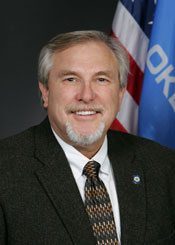BY DAVID PERRYMAN
 Oliver, the title character in Charles Dickens’ Oliver Twist, was born in a workhouse and orphaned at birth. Living in 18th Century England that was grappling with an impoverished and disenfranchised population, Oliver was one of hundreds who were “despised by all, and pitied by none.”
Oliver, the title character in Charles Dickens’ Oliver Twist, was born in a workhouse and orphaned at birth. Living in 18th Century England that was grappling with an impoverished and disenfranchised population, Oliver was one of hundreds who were “despised by all, and pitied by none.”
At nine years old, Oliver was moved to a workhouse whose governing board was composed of portly but philosophical men who were careful to make certain that, under their watch, paupers never became comfortable.
Consequently, workhouse rations were “three meals of thin gruel a day, with an onion twice a week and half a roll on Sundays.” The operation was rather expensive at first, due to the increase in funeral expenses and the need to alter the clothing of the paupers as they rapidly lost weight. However, as the paupers got thin and attrition decreased the number of inmates, the board was in ecstasy at its success.
It was against this backdrop that lots were cast and young Oliver was selected to approach the master for additional gruel. When he pleaded, “Please, sir, I want some more,” the master was horrified at his insolence and the board sentenced the troublemaker to instant confinement until such time that they could rid themselves of such an unappreciative urchin.
Oklahoma educators are increasingly finding themselves in an Oliver Twist scenario. Teachers literally live on the cusp of food stamp eligibility and are continually being strung along by promises and pie in the sky plans for better pay.
Frustratingly, those promises were not fulfilled when oil was over $100 per barrel and they surely are not going to happen now that the state Board of Equalization has certified next budget year [FY 2017] appropriations to be $1.1 billion less [-15.9%] than was appropriated for FY 2016. That is especially true since the real numbers will be $1.3 billion less [-19.1%] since last year’s Rainy Day Fund appropriations and Revolving Fund authorizations are not factored into the FY 2016 baseline amount used by the board. That equates to a decrease of $1 next year for every $5 appropriated last year.
On top of that, the revenue failure declared in December that resulted in a 3% reduction to agencies beginning in January has been revised as the board now projects that Oklahoma’s general revenue collections this fiscal year will be down $549.2 million, or 9.6% below the official estimate upon which the FY 2016 appropriated state budget is based.
That means that on top of January’s 3% reduction, a deepened reduction will be made in March after February’s revenue collections are received.
Guess what? Oil and gas prices are cyclical. Always have been and always will be. The way our state planned for this drop in oil prices is sort of like building a house on top of a railroad track and then cursing the train when it knocks it down.
Writing about Oklahoma’s educational system, Dickens would have observed, “The operation was rather expensive at first, due to the increase in funeral expenses and the vouchers handed out, but as the public school classroom size increased and the number of Oklahoma teachers decreased, the Legislature was in ecstasy at its success.
– David Perryman, a Chickasha Democrat, represents District 56 in the Oklahoma House







